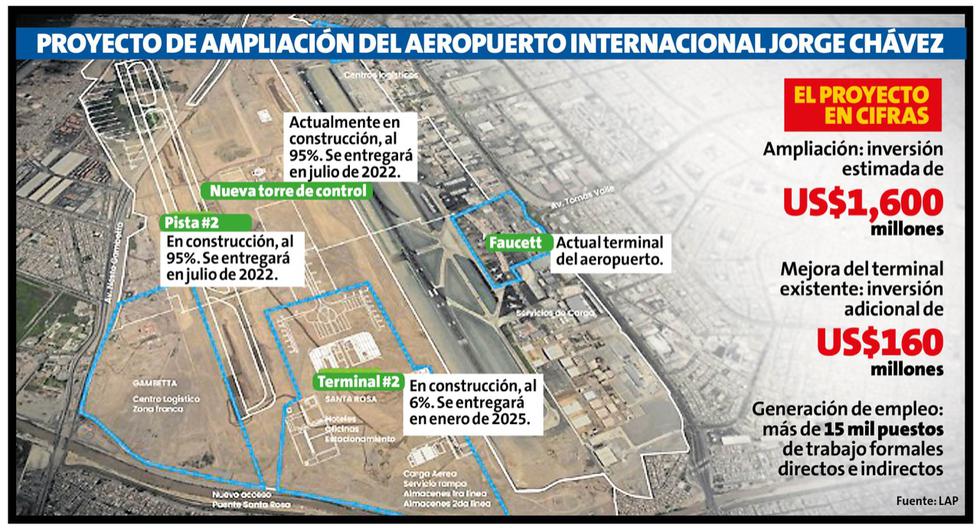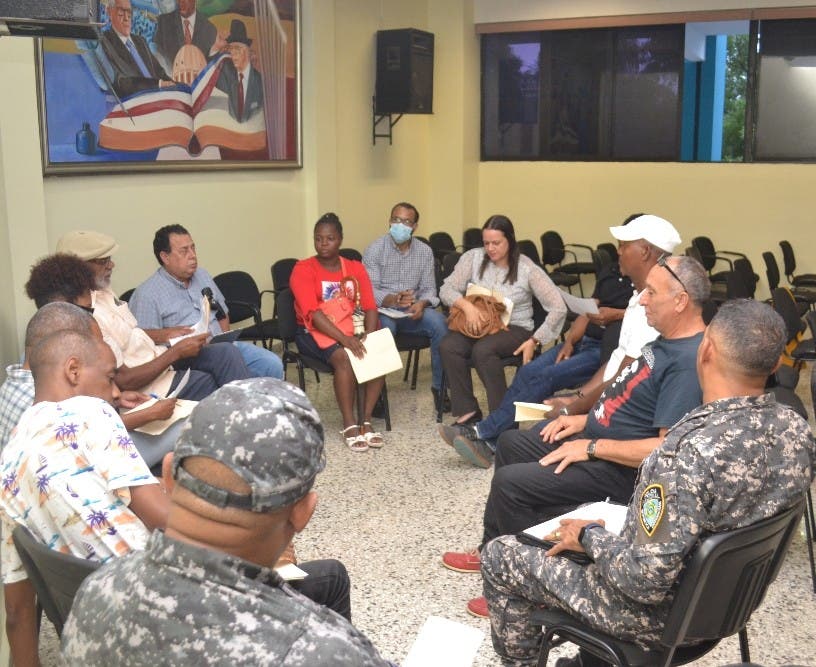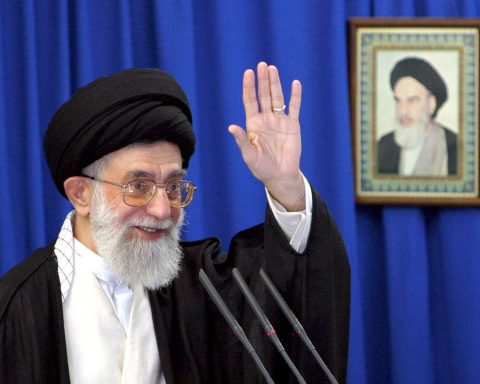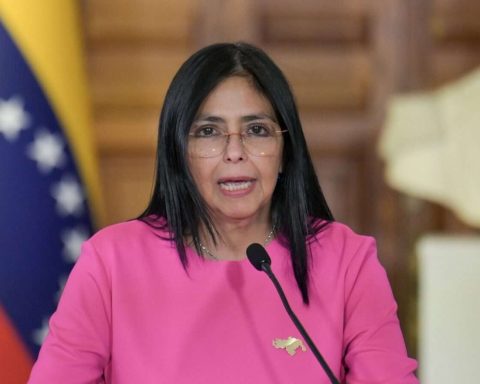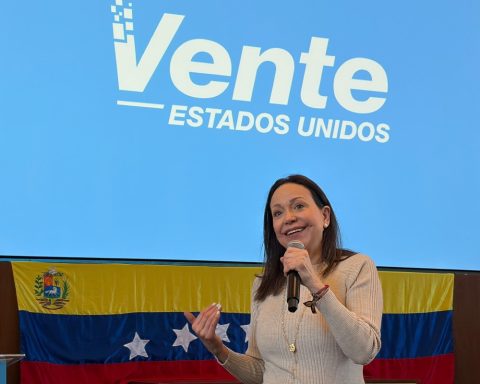The expansion works of the International Airport Jorge Chavez advance and all would be ready in 2025. However, in July of this year, the concessionaire Lima Airport Partners (LAP) plans to deliver the second runway and the control tower
Peru21 He went this week to the area where the works are being carried out to see their progress.
If you enter the construction zone, which is in front of the current passenger terminal that was inaugurated in 1965, you can see the grooves drawn to delimit future roads or areas where work will be done and three structures stand out. One is the construction of the new terminal, another the new control tower with the new administrative building and, finally, the second runway, these last two being the ones that are already 95% complete, while the terminal would be ready in January 2025 having for now a progress of 6%.
LAP plans to invest US$1,600 million in the expansion of the airport and, in addition, allocate US$160 million to the improvement of the current terminal that is already in use. This in total would generate more than 15,000 direct and indirect formal jobs, according to estimates by the concessionaire.
Such an impact would not be explained only by the three works mentioned above, but also by other plans that are part of the expansion, such as creating an airport city and a free zone. The project representative, Lorena Trelles, commented that the idea is to host an area with high commercial movement.
“In the area in front of the new terminal we are building the airport city, which is a commercial space where there will be hotels, parking lots, shopping centers (…). You are going to have an independent interaction,” he explained to Peru21.
The plans regarding trade would not end there, because after 2025 LAP would seek to develop a free zone.
“This is a first investment of US$1,600 million. US$160 million for the remodeling of the current terminal. After 2025 a series of investments will be made. We are going to build a free zone that will allow commercial interaction between the port of Callao and the airport. Then, the logistics operators will be able to decide how they get the raw material, through the port, which is close by, or through the airport”, said Trelles.
One or two terminals?
However, LAP’s plans have also been criticized, especially after it announced modifications to the expansion last year. And although at the time it was opposed by entities such as Indecopi or the Ministry of Transport and Communications (MTC), it was able to reach an agreement with the latter last month.
Initially, the project involved the construction of a new terminal that would be delivered in 2025 and that would increase the airport’s passenger capacity. However, last year, LAP proposed to continue using the current terminal until 2035 and deliver in 2025 one that would be expanded until 2041 and would operate dually or in parallel with the existing one. This generated questions from various unions.
“We disagree with the minutes signed on April 29, 2022 between the MTC and LAP on the airport expansion project, which allows the concessionaire to operate in a dual way, keeping the current passenger terminal in activity and delivering a second building in 2025, but with less capacity compared to the initially committed (…). We urge the authorities to review what has been agreed, giving an adequate course to their actions, allowing this process to close in a participatory and transparent manner, guaranteeing that users do not have to incur any type of cost overrun and respecting the concession contract,” reads the statement. a statement signed by nine business associations, including the International Air Transport Association, the Peruvian Association of Tourism Operators and Comex Peru.
When asked about this question, Trelles clarified that the concessionaire is going to comply with the construction of a terminal of 180 thousand square meters. “It’s the commitment, it’s in the concession contract to build it,” she said. “We want to tell all Peruvians and people who question us, specifically, that we invite you to come here to Jorge Chávez. LAP’s commitment is to build this 180 thousand m2 terminal. The current terminal has 90,000 m2, and in total there will be 270,000 m2 so that all Peruvians and foreigners can travel more widely”, she stressed.
KNEW THAT
- LAP anticipates that the terminal may have up to 300 thousand m2 in 2041 to be able to carry 50 million passengers per year.
- The two terminals will have the combined capacity for an annual flow of 37 million passengers.
Juan Stoessel: “The problem is connectivity”
Let’s be clear. The problem with the LAP proposal is not that there are two terminals, but that it is a bad project. Many A1 airports have two terminals. The difference is that they are perfectly connected, usually through a monorail, guaranteeing fast and efficient transit.
In the case of Jorge Chávez, the new terminal will not be next to the old one. It will be located between the two runways, which complicates connectivity. The only possible rapid communication would be a tunnel under the current runway. It would be interesting for LAP to report if that will be the case. Otherwise, passengers in one terminal would have to walk the entire runway and exit the airport to access the other. Can you imagine the chaos?
The original project was designed for a new large terminal. The obsolete terminal was not going to be part of the airport, it was going to be transformed into a mall. That is why connectivity was never addressed. And that is why LAP says that they are just “studying” the issue. They have no idea how to solve it, but they already put the cart before the horse. And they convinced the MTC to agree to something that will not be beneficial for tourism or for the country.
